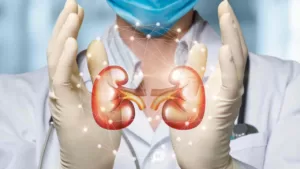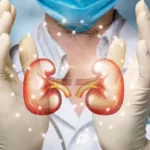The Best Fluffy Pancakes recipe you will fall in love with. Full of tips and tricks to help you make the best pancakes.
Gum disease, or periodontal disease, is a common and serious oral health issue that affects the tissues surrounding the teeth. It can lead to tooth loss and other complications if left untreated. In this article, we will explore the connection between gum disease and tooth removal, and address the question: does gum disease go away when teeth are removed? We will delve into the effectiveness of tooth removal in completely curing gum disease, as well as the exceptions to this scenario.
We will discuss the role of tooth extraction in managing advanced gum disease, along with long-term strategies for preventing gum disease and maintaining oral health. We will examine the necessity of tooth extraction for treating gum disease, and explore other treatment options available. This comprehensive guide aims to provide authoritative information on the topic, with insights from expert sources, offering clarity on frequently asked questions related to gum disease and tooth removal. Join us as we uncover the complexities of gum disease and its relationship to tooth removal, empowering you to make informed decisions about your oral health.
Key Takeaways:
- Gum disease is a common condition that affects the gums and can lead to tooth loss if left untreated.
- Tooth extraction may be necessary in advanced cases of gum disease, but it does not guarantee a complete cure.
- Proper management and prevention strategies, including regular dental check-ups, are essential for maintaining oral health and preventing gum disease.
Does Gum Disease Go Away When Teeth Are Removed?
Gum disease, also known as periodontal disease, is a serious condition that affects the tissues and bone supporting the teeth. It is caused by the buildup of plaque and bacteria along the gumline, leading to inflammation and potential tooth loss.
When plaque is not adequately removed through proper oral hygiene, it can harden into tartar, which further irritates the gums. The continuous presence of bacteria and the body’s immune response to the infection can eventually cause the gums to pull away from the teeth, forming pockets that become infected.
As the disease progresses, the bone and connective tissue that hold teeth in place may deteriorate, leading to loosening and eventual tooth loss. Symptoms of gum disease include:
- Persistent bad breath
- Swollen or bleeding gums
- Sensitive teeth
- Receding gums
Understanding Gum Disease
Understanding gum disease involves recognizing the impact of plaque and bacteria on gum health, as well as the progression from gingivitis to periodontitis.
The Connection Between Gum Disease and Tooth Loss
The connection between gum disease and tooth loss is attributed to the impact of bacterial infection on the gum tissues, leading to gum bleeding, gum pockets, and potential tooth detachment.
Can Gum Disease Be Completely Cured Through Tooth Removal?
The question of whether gum disease can be completely cured through tooth removal remains a topic of significant consideration within the realm of periodontal treatment and oral care.
The Exception To This
While tooth removal may address certain aspects of gum disease, there are exceptions where it may not completely eliminate the underlying factors, necessitating continued dental visits and long-term management.
In cases where periodontal disease has progressed to the advanced stages, the bacteria and infection may have spread beyond the affected tooth, impacting surrounding gums and bone. Even after a tooth is extracted, the infection can persist in the deeper gum pockets, requiring regular professional cleaning, antibiotic treatment, and vigilant oral hygiene practices to prevent the condition from worsening.
Extraction of 3rd Molar / Wisdom Teeth
The extraction of third molars, commonly known as wisdom teeth, is often associated with the management of gum disease, especially in cases where their eruption contributes to periodontal complications.
Wisdom teeth, located at the back of the mouth, can often cause issues due to their late eruption, leading to overcrowding or impaction. This can create pockets where food particles and bacteria accumulate, increasing the risk of gum disease. The presence of wisdom teeth can make proper oral hygiene practices more challenging, further complicating the prevention and management of gum disease.
Tooth Extraction Is Sometimes Essential In Advanced Gum Disease
In advanced stages of gum disease, tooth extraction may become essential to address severe periodontal damage and support the overall treatment plan for the condition.
When gum disease progresses to an advanced stage, the underlying bone and tissues that support the teeth can be severely affected. Tooth extraction may be necessary when these structures are compromised beyond repair, as it allows the dentist to remove the source of infection and prevent further spread of the disease.
In cases where the periodontal damage is extensive, extraction facilitates the initiation of comprehensive treatment measures, such as gum grafting or dental implants, to restore oral health and functionality.
Managing Gum Disease
Managing gum disease involves a multi-faceted approach, encompassing treatments such as scaling, root planing, antibiotic therapy, and emerging modalities like laser treatment for periodontal health.
Advanced Treatments
In cases of advanced gum disease or periodontitis, advanced treatments such as bone grafting and potential considerations for dentures may be explored to address the extensive impact on oral health.
Periodontitis, marked by severe inflammation and infection of the gums, can lead to progressive destruction of the supporting bone around the teeth, necessitating advanced interventions.
Bone grafting procedures involve replacing or regenerating bone to restore structural integrity and create a stable foundation for teeth, contributing to the success of dental implants and overall oral health.
Dentures can be a viable option for individuals facing extensive tooth loss from periodontitis, offering not only functional benefits but also aesthetic improvement and enhanced chewing and speaking abilities. Careful evaluation and maintenance are essential to ensure their suitability and long-term effectiveness in managing the consequences of advanced gum disease.
Long-Term Strategies for Preventing Gum Disease and Maintaining Oral Health
Implementing long-term strategies to prevent gum disease and maintain optimal oral health involves a proactive approach encompassing measures such as regular dental visits, diligent oral hygiene practices, and potential considerations for bone grafts when necessary.
The Role of Tooth Extraction in Gum Disease Treatment
Tooth extraction plays a pivotal role in the comprehensive treatment of gum disease, addressing specific instances where the removal of affected teeth contributes to improving oral health and supporting long-term dental care.
Why Tooth Extraction Is Necessary for Treating Gum Disease
Understanding why tooth extraction is necessary for treating gum disease involves recognizing its role in addressing severe periodontal damage, facilitating bone grafting procedures, and supporting the overall management of advanced periodontitis.
Other Treatment Options for Gum Disease
Apart from tooth extraction, there are various alternative treatment options for gum disease, including antibiotic therapy, laser procedures, and potential considerations for dentures in certain cases of extensive periodontal damage.
Frequently Asked Questions About Gum Disease and Tooth Removal
Addressing frequently asked questions about gum disease and tooth removal involves providing comprehensive insights into topics such as the impact of gum pockets, the potential role of dentures, and the association between tooth loss and advanced periodontal conditions.
How Long Does It Take For Teeth To Fall Out With Gum Disease?
The timeline for teeth to fall out due to gum disease varies based on factors such as the severity of periodontal damage, the presence of gum bleeding, and the effectiveness of oral hygiene practices in managing the condition.
The progression of gum disease can significantly impact the potential timeline for tooth loss. For example, if left untreated, advanced periodontitis can rapidly lead to the loosening and eventual loss of teeth. Factors such as poor nutrition, smoking, and systemic diseases may also exacerbate gum disease, further accelerating the risk of tooth loss. Regular dental check-ups and professional cleanings play a vital role in detecting and managing the early signs of gum disease, ultimately influencing the longevity of teeth in the affected individual’s oral cavity.
Will Getting Dentures Stop Gum Disease?
While dentures can address the consequences of tooth loss due to gum disease, they do not stop the underlying condition, necessitating continued dental visits and long-term management to support oral health.
It is essential to understand that gum disease, also known as periodontal disease, is often the primary reason for tooth loss, leading to the need for dentures in many cases. Simply relying on dentures without addressing the underlying gum disease can lead to further complications. The presence of gum disease can jeopardize the stability of dentures, causing discomfort and affecting the overall oral health. This highlights the importance of ongoing dental care to manage the underlying periodontal condition, complementing the use of dentures. Denture wearers should adhere to regular dental check-ups and maintain good oral hygiene habits to prevent or manage gum disease, ensuring the longevity and effectiveness of their dentures.
Authoritative Sources
As an authoritative figure in the realm of oral health, Sharon Fyles provides valuable insights and expertise in addressing the complexities of gum disease and its management, offering comprehensive information to support well-considered choices and proactive dental care.
June 14, 2021
The information provided on June 14, 2021, by Sharon Fyles is a valuable resource for understanding the nuances of gum disease and its impact on oral health, offering insights into effective management strategies and preventive measures.
Sharon Fyles’ comprehensive overview delves into the various stages of gum disease, highlighting the progression from gingivitis to periodontitis and the associated risks posed to dental and overall well-being. Her work emphasizes the importance of regular dental check-ups and proper oral hygiene in combating gum disease. It sheds light on the potential systemic health implications of untreated gum disease, stressing the need for holistic care and prevention. Fyles’ contribution provides a thorough understanding of the multifaceted nature of gum disease and equips individuals with valuable knowledge to take proactive steps towards maintaining optimal oral health.
October 14, 2022
The content presented on October 14, 2022, by Sharon Fyles provides valuable perspectives on the evolving landscape of gum disease management and oral health strategies, contributing to well-considered choices and proactive dental care.
Through her comprehensive analysis, Sharon Fyles has shed light on the latest advancements in gum disease management, emphasizing the importance of early intervention and personalized oral health strategies tailored to individual needs. Her work underscores the critical role of patient education, preventive measures, and the adoption of evidence-based approaches in fostering proactive dental care. By addressing the multifaceted nature of gum disease and oral health, Fyles’ insights facilitate a deeper understanding of these issues and their implications for overall well-being.
December 15, 2022
The insights conveyed by Sharon Fyles on December 15, 2022, offer valuable perspectives on the contemporary approaches to gum disease management, contributing to the enhancement of oral health awareness and the advancement of proactive dental care initiatives.
Sharon Fyles’ deep understanding of the latest advancements in dental care has shed light on the significance of early detection and customized treatment plans to effectively address gum diseases. Her inputs have emphasized the pivotal role of patient education in preventing and managing periodontal conditions, enableing individuals to take charge of their oral health. By advocating for holistic oral care practices, Sharon Fyles has been instrumental in transforming the traditional approaches towards gum disease management and fostering a comprehensive outlook on oral wellness.
Conclusion
The multifaceted nature of gum disease necessitates a comprehensive approach to treatment and prevention, emphasizing the pivotal role of oral health practices and well-considered choices in combating this prevalent oral health concern.
Gum disease is influenced by a variety of factors, including genetics, lifestyle choices, and oral hygiene habits. Understanding the complexities of this condition underscores the importance of regular dental check-ups and professional cleanings to identify and address potential issues early on.
Additionally, oral health education and personalized care plans play a crucial part in enhancing awareness and enableing individuals to take proactive measures in preserving their oral well-being.
Frequently Asked Questions
Does gum disease go away when teeth are removed?
No, gum disease does not automatically go away when teeth are removed. It is important to maintain good oral hygiene and follow the recommended aftercare instructions from your dentist.
Can removing teeth cure gum disease?
Removing teeth may help alleviate some symptoms of gum disease, but it is not a guaranteed cure. Proper treatment and maintenance are necessary to fully address gum disease.
Will removing all my teeth get rid of gum disease?
Removing all of your teeth is not a recommended treatment for gum disease. It is important to consult with a dentist and follow a personalized treatment plan to effectively manage gum disease.
Is it better to remove teeth or treat gum disease?
This depends on the severity of your gum disease and the recommendation of your dentist. In many cases, treatment is preferred over removing teeth as it can preserve your natural teeth and prevent further complications.
What happens if I don’t remove my teeth with gum disease?
If gum disease is left untreated, it can lead to further damage to your teeth and gums. This can result in tooth loss, infections, and other serious health complications. It is important to address gum disease as soon as possible.
Can I prevent gum disease from coming back after removing teeth?
While removing teeth may help alleviate gum disease, it is important to maintain a good oral hygiene routine and follow any recommendations from your dentist to prevent it from coming back. Regular dental check-ups and cleanings can also help prevent gum disease from recurring.
Learn How Long Can You Keep Your Teeth With Periodontal Disease








